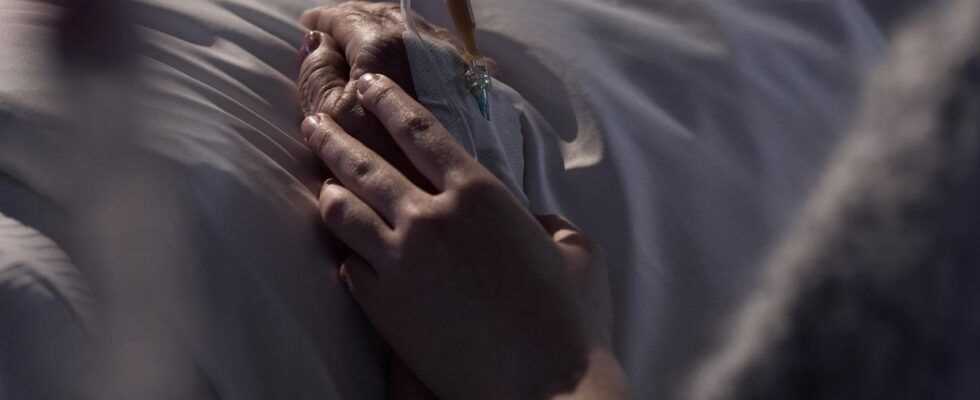When Ariela Sarbacher found out about her mother's decision to take her own life, she was shocked. And then got to know her again.
My mother always referred to herself as very rational. As an Italian, she came here through marriage to a Swiss citizen. She valued the rational thinking and acting of the Swiss. She also made a rational decision to go self-determined.
Terminal Care – Dedication and Care
The euthanasia organization Exit has existed in Switzerland since 1982, and my mother was one of its first members. Our views on it diverged so widely that we avoided the subject for years. And now the time had come.
I held onto her. Clung to her, cried, argued. I made her promise that I would only use euthanasia if she was in pain. She made me promise to let her go her own way if the pain came. But actually I knew she couldn't be changed. And she knew I knew. And that made me terribly sad, this mutual knowledge that could not be shared.
She vigorously took all the necessary steps as if she had booked a trip. To be accompanied means to give oneself to the care of others. My mother couldn't. She was strong. She got mail every day. Letters in which friends and acquaintances told her what she meant to them. She read her lines and suddenly I saw that her face was all wet. It wasn't because of her, she said, she was crying because of us, she was sorry to see us all sad, she had had everything in her life, it was fulfilled.
The possibility of suicide as a control
Our story rolled towards me one more time like a wave, from my childhood to the summer it finished writing. She washed our relationship ashore – mother, daughter, mother, daughter, mother – I reached out for her, but she withdrew. I felt exposed. I feared that she would leave me like this while she found her way out.
And yet: by moving away from me, my mother gave me space and time to understand her. I wondered for the first time who she was, beyond my relationship with her. "We carry our parents in us, in a square!" A friend once said to me, which is why it is so difficult to see them for who they are. The possibility of suicide always existed for my mother. It gave her support in her extraordinary existence, the certainty that she was in control. In her early teens she had been very ill and only miraculously survived. That had shaped her. She knew what pain was. That's why she joined the Exit organization.
In the few weeks before her death, she was completely with herself. That impressed me. There were moments when I was able to see her with new eyes. I saw her for the other woman she was, with her own story that was radically different from mine. It was not my job as a daughter to free her from her story; it was my job to release her from her responsibility as a mother.
You will walk in my arms
I drove to her every day. Every afternoon we watched Downton Abbey. Two hours of distraction and togetherness. When Lady Sybil died, my mother was moved. This scene comforted me, I thought people were dying everywhere. When this episode ended, she promised me not to leave until we saw all of the episodes. We watched women and men in beautiful costumes live, everything according to the script. Suddenly I wished to play again. I used to be an actress. I sat with her and thought about a time after …
At the very end she asked me again if I really wanted to expect that. "You will walk in my arms," I said. She was lying and we were holding hands. "I'm sorry you had to have such an experience because of me," she said.
Ariela Sarbacher is a writer, actress and classroom trainer (einfluss.ch). Your novel "Summer in my mother's garden" (Bilger) is shaped by autobiography. Current: "The slowed down, the turbulent spring, and now it's summer" (Telegrams).
Would you like to read more about the topic and exchange ideas with other women? Then have a look at the "Death, Mourning, Mourning Management Forum" of BRIGITTE community past!
Get the BRIGITTE as a subscription – with many advantages. You can order them directly here.
